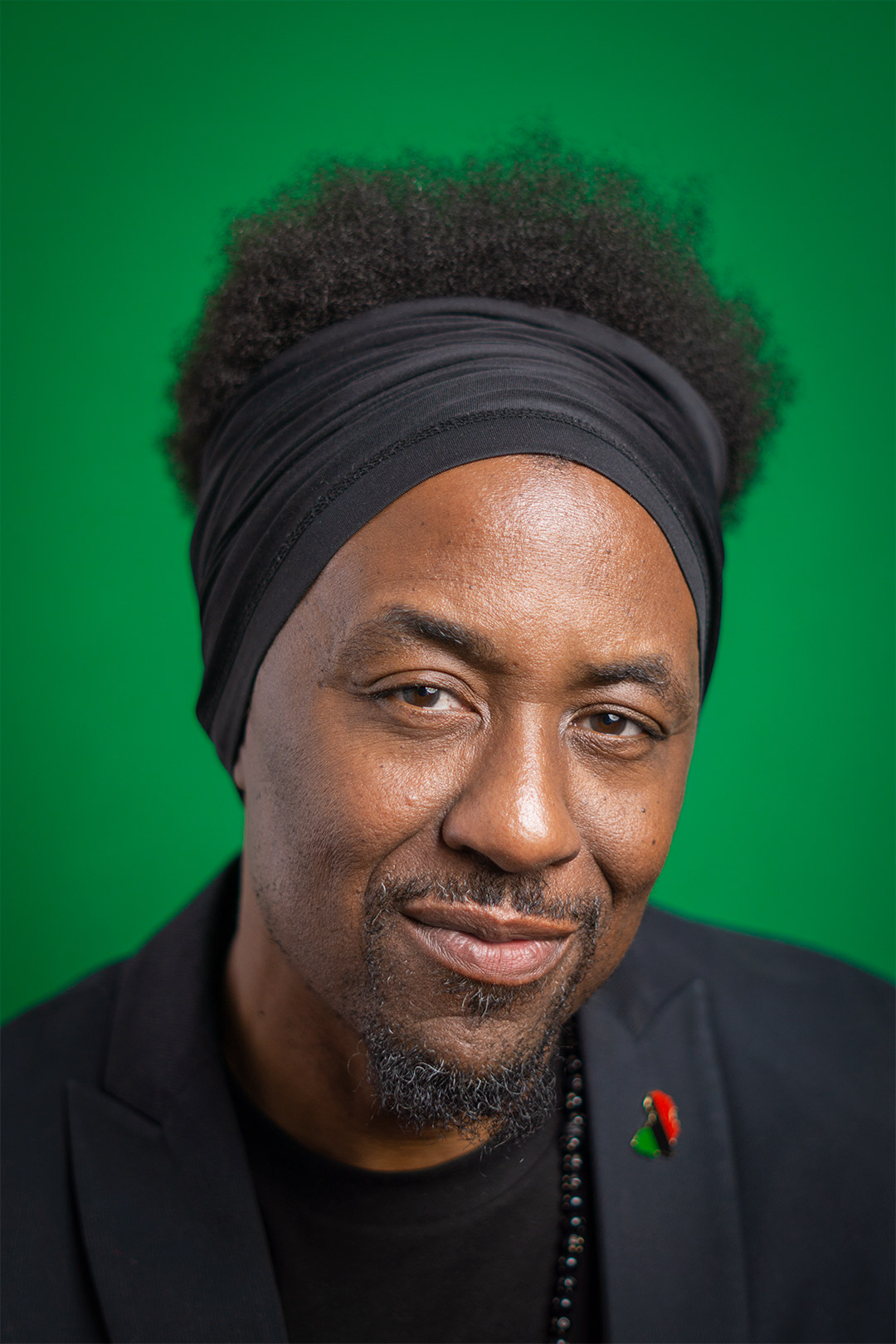
|
Halim • Executive Director and Founder, From The Heart Enterprises
Activist, mentor, facilitator, and mental health professional Halim, grew up in the Park Hill area. He remembers having all types of people on the block and shared that he never really felt racism at 11th and Rosemary. At that time, the community was safe. He remembered that his family wouldn’t lock doors and that there were no such things as alarms. Growing up, when he misbehaved, he was admonished and corrected by the neighbors on the street, and by his mother too. There was a village mentality and a community effort to have a positive influence on young people. For Halim, it was comforting and reassuring because he knew that he was valued and appreciated. Not for having a particular skill, like being an athlete or a singer, but appreciated for being a person. Because of that, he grew up feeling like he could do anything. However, Halim endured hardship and an extremely troubled youth. He overcame the challenges of early fatherhood, incarceration, recovery from addiction, divorce, loss, trauma, gun violence, and illegal activities of all kinds. Today he calls himself a survivor and a servant who is making a difference through mental health at From The Heart Enterprises . Halim’s work aims to transform traumatic experiences and lifestyles by restoring strong personal foundations, reintroducing personal balance, and implementing wellness tools to apply for a lifetime. He works directly with the Denver Metro community and its suburbs advocating for the empowerment and mental health awareness to establish healthy American families. In Denver, Halim is thriving, giving back, and reinventing himself at will. When I asked him to describe Denver in one word, he replied, “opportunity.” Here’s what it means to be Halim, here. Who are you? I am a thinker with a liberated mind, a spiritual being on a human journey. On a social emotional level, I am in harmony with my feeling body. On a spiritual level, I am one with nature and my thinking body. And on a physical level, I am whole and utterly complete. I know that I am a hierophant, a sage, a prophet of sorts. Since I was a very young man, I’ve been interested in spiritual things and spiritual truths and convening with nature. I look at this tree and I see myself. I look at the bushes and I can see myself. So that means there has to be a connection. I am an energetic being, and this is what I know. That’s who I am. What does it mean to be you? It means to be someone who is one with truth. I have been ransomed from the perils of the lower self so I am myself, my higher self. It means to feed, but never be fed. It means to serve, without looking to be served. I have my moments, but for the most part it means to always be strong, because there are so many people that rely on that strength. I feel obligated to strength, I feel obligated to uphold that image, and I feel obligated to the people. What does it mean to you to be Black in Denver? What’s happening here, we are pioneering. It doesn’t exist. What we’re doing today has never been done in this space. It’s the opportunity to innovate and to create without any inhibitions, without any competition. If I say that I want to facilitate a train-the-trainer program we are going to put it together using the five key concepts: hope, personal responsibility, self-advocacy, education and support. We are going to create principles and rules and laws for our community and accountability systems. I don’t know if I could do that anywhere else. In this space, there is no resistance or friction. What it means to be me here is to create a space where we’re not just leaning on our religious sanctuaries for refuge or deliverance. For example, when this pandemic hit, I started doing Tai Chi in the park on Sunday morning by the Martin Luther King statue for the sake of my mothers and my aunts who were so used to the social environment of church. I got 10 to 12 people — brothers and sisters — out there every Sunday doing Tai Chi. It was the most beautiful thing I’ve ever seen in my life. When you quiet your internal dialogue, you can hear the voice of your higher self speak. How have your experiences in Denver shaped you? When I was about 10 or 11, we moved to Aurora. It was where I had my first experience with racism. It was also where I started fighting because I was being bullied. A lot of my friends were from single parent households, and even though my mother and father were both in the home, I gravitated toward what my friends were doing. I became a leader in all of the wrong ways, and became curious as to what it looks like to be a bad boy. One thing led to another, and I had my first child before I graduated high school, which put me directly on the street. I was forced into the streets because I had a family to take care of and I refused to work for anybody, especially somebody who doesn’t look like me. So therefore, the illegal activity became, in my mind, the only option, and I began to walk down that path and one thing led to another, and the deeper I got, the more entrenched and the harder it became to escape. What do you love most about living in Denver? The mountains. |
